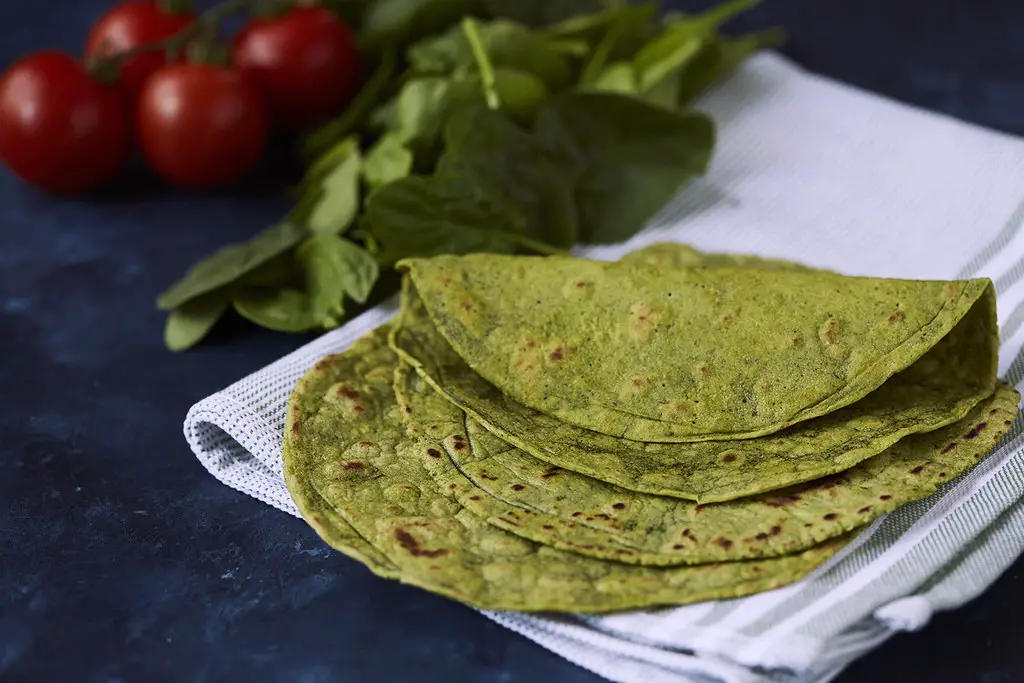When it comes to nutrition during pregnancy, ensuring that expecting mothers receive a balanced and healthy diet is crucial for the health and well-being of both the mother and the developing fetus. A well-rounded diet during pregnancy can support the baby’s growth and development and help the mother maintain her health and energy levels. Here’s an overview of good foods that should be included in a pregnant woman’s diet, along with some dietary principles to follow.
Fruits and Vegetables
Fruits and vegetables are packed with essential vitamins, minerals, and fiber that are important for a healthy pregnancy. They provide vitamin C, vitamin A, potassium, and folic acid, among other nutrients. Pregnant women should aim to eat a variety of fruits and vegetables each day to ensure they get a broad spectrum of nutrients.
Whole Grains
Whole grains are an important source of energy in the diet and provide essential nutrients like fiber, iron, and B vitamins. Choices like whole grain bread, brown rice, oatmeal, and quinoa can help keep blood sugar levels stable and support digestive health.

Lean Protein
Protein is crucial for the baby’s growth, especially in the second and third trimesters. Good sources of lean protein include poultry, fish, eggs, beans, lentils, and tofu. Fish rich in omega-3 fatty acids, such as salmon, are also beneficial for the baby’s brain development. However, it’s important to avoid fish with high levels of mercury.
Dairy
Dairy products provide calcium, protein, and vitamin D, which are vital for the development of the baby’s bones and teeth. Options include milk, yogurt, and cheese. For those who are lactose intolerant or vegan, fortified plant-based alternatives can be good substitutes.
Healthy Fats
Healthy fats are important for the baby’s brain development. Sources of healthy fats include avocados, nuts, seeds, olive oil, and fatty fish. These should be consumed in moderation as part of a balanced diet.

Iron-Rich Foods
Iron is important for preventing anemia and ensuring the baby has adequate blood supply. Iron-rich foods include lean meats, poultry, fish, lentils, spinach, and iron-fortified cereals.
Folic Acid
Folic acid is crucial for preventing neural tube defects in the fetus. Foods rich in folate include leafy green vegetables, citrus fruits, beans, and fortified foods. Pregnant women are also advised to take a folic acid supplement as recommended by their healthcare provider.
Dietary Principles to Follow
Balance and Variety: Aim for a balanced diet that includes a variety of foods to cover all nutrient needs.
Hydration: Drinking plenty of water is important to support the increased blood volume during pregnancy and to prevent constipation.
Moderation: While it’s necessary to increase calorie intake during pregnancy, this should be done in moderation, focusing on nutrient-dense foods.
Avoid Certain Foods: To reduce the risk of foodborne illness, pregnant women should avoid unpasteurized dairy products, raw or undercooked meats, and certain fish high in mercury.
A healthy diet during pregnancy supports the mother’s health and encourages the baby’s proper growth and development. By focusing on a balanced intake of nutrient-dense foods and following dietary guidelines, pregnant women can help ensure a healthy pregnancy and a strong foundation for their baby’s future. Always consult with a healthcare provider or a registered dietitian to tailor dietary choices to individual health needs and pregnancy stages.

Prenatal Vitamins
In addition to a well-rounded diet, prenatal vitamins play a crucial role in filling any nutritional gaps.
These supplements are specifically designed to meet the increased nutritional needs of pregnant women. They typically contain folic acid, iron, calcium, DHA, and other important vitamins and minerals. It’s important for pregnant women to discuss with their healthcare provider which prenatal vitamins are best for them, as needs can vary based on individual health and dietary restrictions.
Special Dietary Considerations
Some pregnant women may have special dietary considerations, such as gestational diabetes, vegan or vegetarian diets, or food intolerances and allergies. In these cases, it’s essential to work closely with a healthcare provider or a registered dietitian to ensure that both the mother’s and baby’s nutritional needs are met while accommodating these dietary requirements.
Gestational Diabetes
For women with gestational diabetes, managing carbohydrate intake and ensuring a diet rich in fiber, lean protein, and healthy fats can help control blood sugar levels. Monitoring and planning meals with a healthcare professional is key to managing this condition.
Vegan and Vegetarian Diets
Pregnant women following vegan or vegetarian diets need to pay particular attention to getting enough protein, iron, calcium, vitamin D, omega-3 fatty acids, and vitamin B12. Plant-based sources, fortified foods, and supplements can help meet these needs.
Foods to Limit or Avoid
Certain foods and substances should be limited or avoided during pregnancy due to potential risks to the baby:
High-Mercury Fish: Large fish like shark, swordfish, king mackerel, and tilefish are high in mercury and should be avoided. Limit white (albacore) tuna to 6 ounces per week.
Raw or Undercooked Foods: Raw meat, poultry, seafood, and eggs can harbor harmful bacteria and viruses. All meats and eggs should be cooked thoroughly.
Unpasteurized Foods: Unpasteurized milk, cheese, and juice can contain harmful bacteria like Listeria, which can lead to serious infections.
Excessive Caffeine: Limit caffeine intake to less than 200 mg per day, the equivalent of about one 12-ounce cup of coffee, as high caffeine intake can be associated with miscarriage and low birth weight.
Alcohol: There is no known safe amount of alcohol during pregnancy, and it’s best to avoid it altogether to prevent the risk of fetal alcohol spectrum disorders.

Eating a nutritious and balanced diet during pregnancy is one of the most important ways to ensure the health and well-being of both the mother and her baby. By focusing on nutrient-dense foods, staying hydrated, and avoiding foods that pose risks, pregnant women can support their baby’s development and prepare for a healthy birth. Regular consultations with healthcare providers will help tailor dietary recommendations to meet individual needs and manage any pregnancy-related conditions effectively.
FAQ: Nutrition During Pregnancy
How much should I eat during pregnancy?
The amount of food a pregnant woman needs depends on her body mass index (BMI) before pregnancy, her activity level, and how far along she is in her pregnancy. Generally, most women need to consume about 300 extra calories per day during the second and third trimesters. However, this can vary, so it’s important to consult with a healthcare provider for personalized advice.
Can I be vegetarian or vegan during pregnancy?
Yes, you can maintain a vegetarian or vegan diet during pregnancy, but you’ll need to be mindful to include enough protein, iron, calcium, vitamin D, omega-3 fatty acids, and vitamin B12 in your diet.
Supplements and fortified foods can be beneficial. Consulting with a dietitian can help ensure you’re meeting all your nutritional needs.
What can I do to manage morning sickness?
To help manage morning sickness, eat small, frequent meals throughout the day rather than three large meals. Avoid spicy, fatty, or overly sweet foods, as these can exacerbate nausea. Keeping simple snacks like crackers by your bed to eat before getting up can also help. Ginger tea or ginger candies may provide relief for some women. If morning sickness is severe, it’s important to speak with a healthcare provider.
How much weight should I expect to gain during pregnancy?
Weight gain recommendations during pregnancy vary depending on your pre-pregnancy weight.
Generally, underweight women may need to gain 28-40 pounds, normal-weight women 25-35 pounds, overweight women 15-25 pounds, and obese women 11-20 pounds. Your healthcare provider can offer personalized guidance based on your individual health profile.
Are there any supplements I should be taking?
Prenatal vitamins are recommended to ensure you’re getting enough folic acid, iron, calcium, and DHA.
These nutrients are crucial for the baby’s development and can help prevent birth defects. Always consult with your healthcare provider before starting any new supplements.
Is it safe to exercise during pregnancy?
Yes, exercise is generally safe and beneficial during pregnancy for most women, but the type and intensity of exercise may need to be adjusted. Low-impact activities such as walking, swimming, and prenatal yoga are often recommended. Always consult with a healthcare provider before starting or continuing an exercise regimen during pregnancy.
How can I ensure I’m getting enough calcium if I’m lactose intolerant?
For those who are lactose intolerant, calcium can be sourced from fortified plant-based milks (such as almond, soy, or rice milk), leafy green vegetables, tofu made with calcium sulfate, and calcium-fortified orange juice. Supplements may also be considered under the guidance of a healthcare provider.
Can I eat seafood during pregnancy?
Yes, seafood can be a great source of protein and omega-3 fatty acids, which are beneficial for your baby’s brain development. However, it’s important to choose seafood low in mercury and to avoid raw or undercooked fish and shellfish. Salmon, sardines, trout, and herring are good choices.
What should I do if I’m not gaining enough weight?
If you’re concerned about not gaining enough weight, consult with your healthcare provider. They may recommend increasing your calorie intake with nutrient-dense foods or may refer you to a dietitian for personalized advice.
Can diet influence my baby’s health after birth?
Yes, a healthy diet during pregnancy can have long-term benefits for your baby’s health, including a lower risk of developing conditions like obesity, type 2 diabetes, and heart disease later in life.
Nutrient-rich foods support optimal fetal development and can affect health outcomes after birth.


















